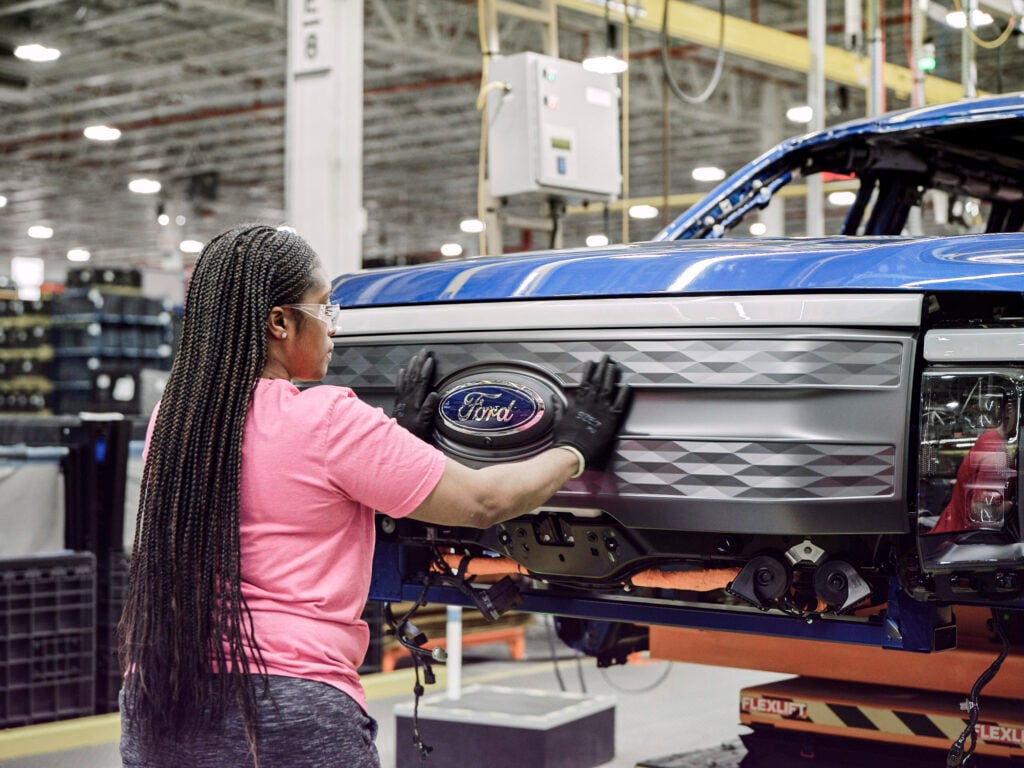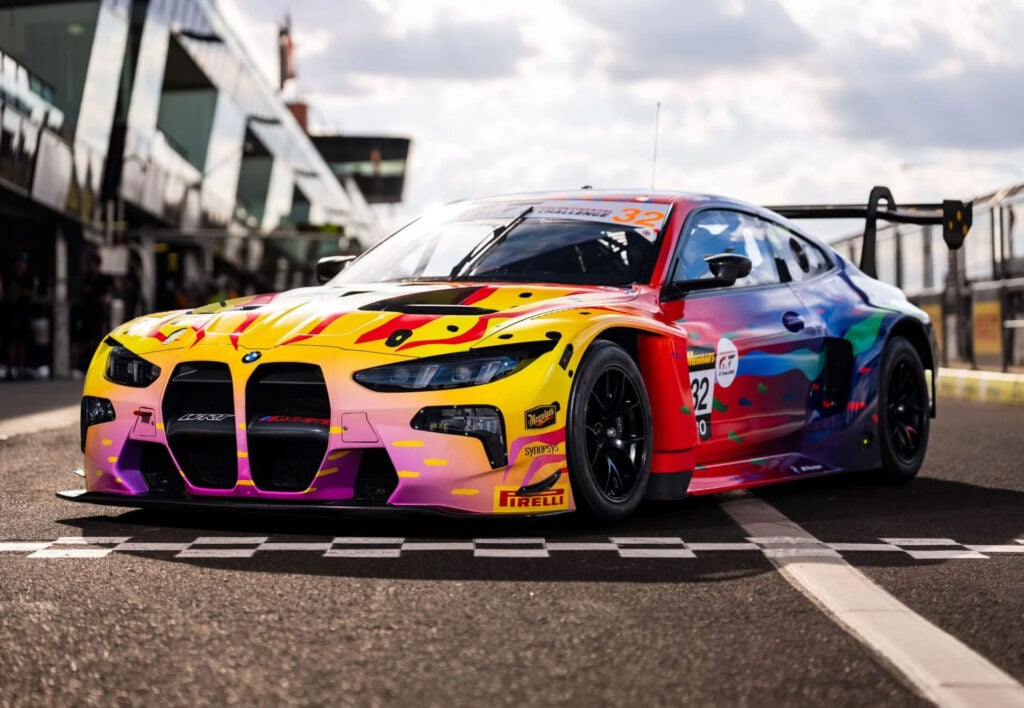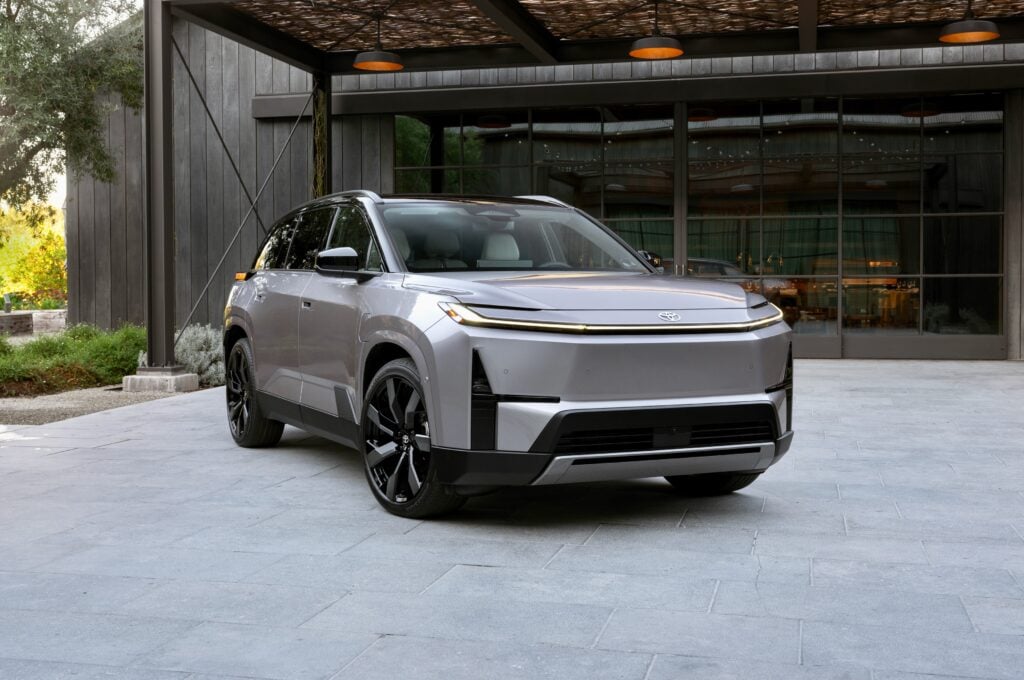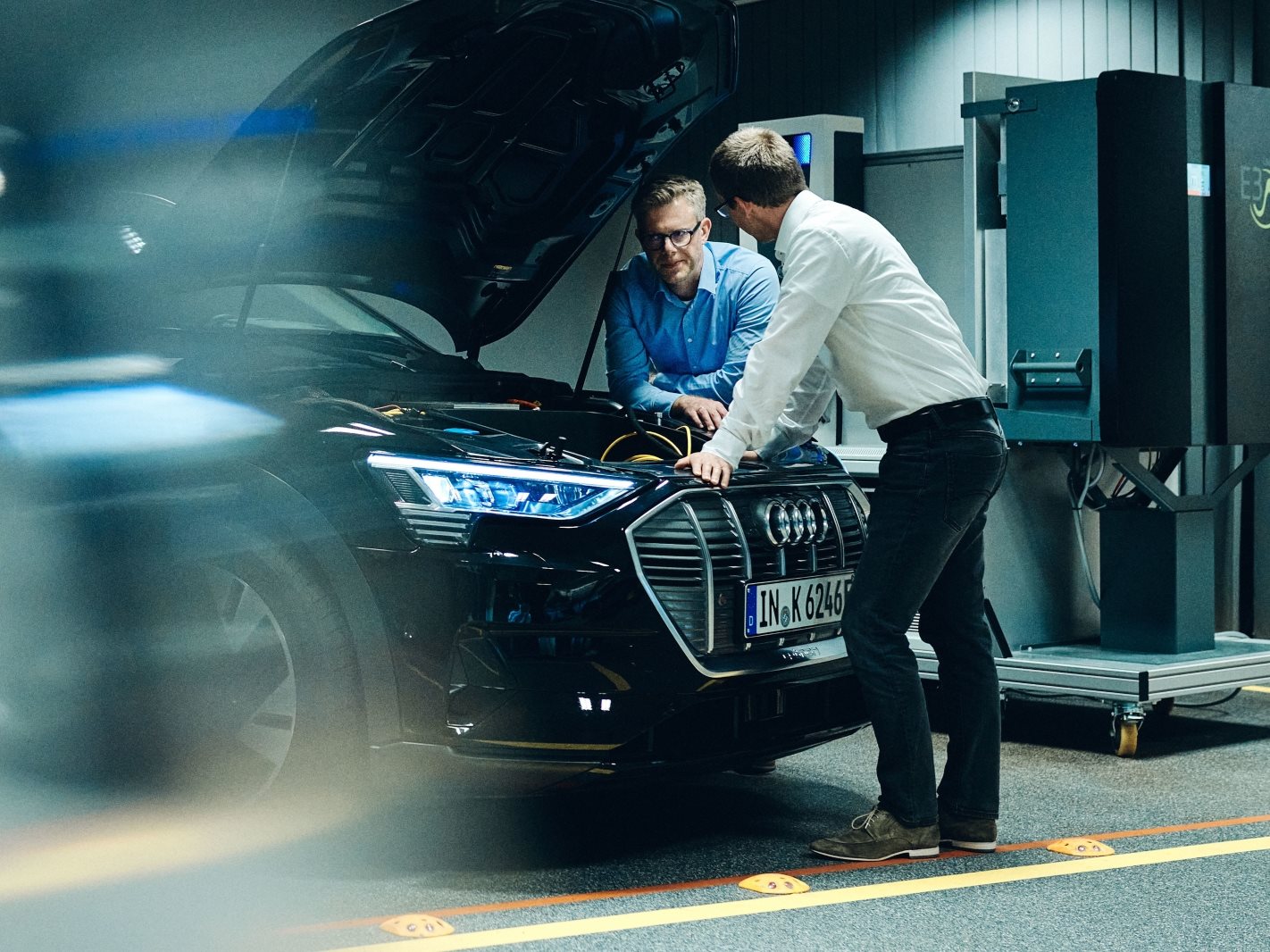
When is Audi going full-EV? What electric models does Ford have? How many EVs is Volvo aiming to produce in the next few years?
As the world begins to rapidly adopt electric vehicles and move away from internal combustion engines, it’s easy to get lost and not know who’s doing what.
With Europe planning to phase out the sale of ICE vehicles by 2035 and the UK aiming to do so by 2030, the United States stands as one of the largest markets to not yet adopt a binding strategy – although the Government is now in talks with its local automakers to push for 40 per cent EV sales by 2030.
These are some questions we’ve aimed to answer, providing a brief breakdown of what each of the major manufacturers is planning to do – either proactively or reactively in the face of ever-tightening emissions regulations overseas.
Stellantis – Abarth, Alfa Romeo, Chrysler, Citroen, Dodge, DS, Fiat, Jeep, Lancia, Maserati, Opel, Peugeot, Ram, and Vauxhall
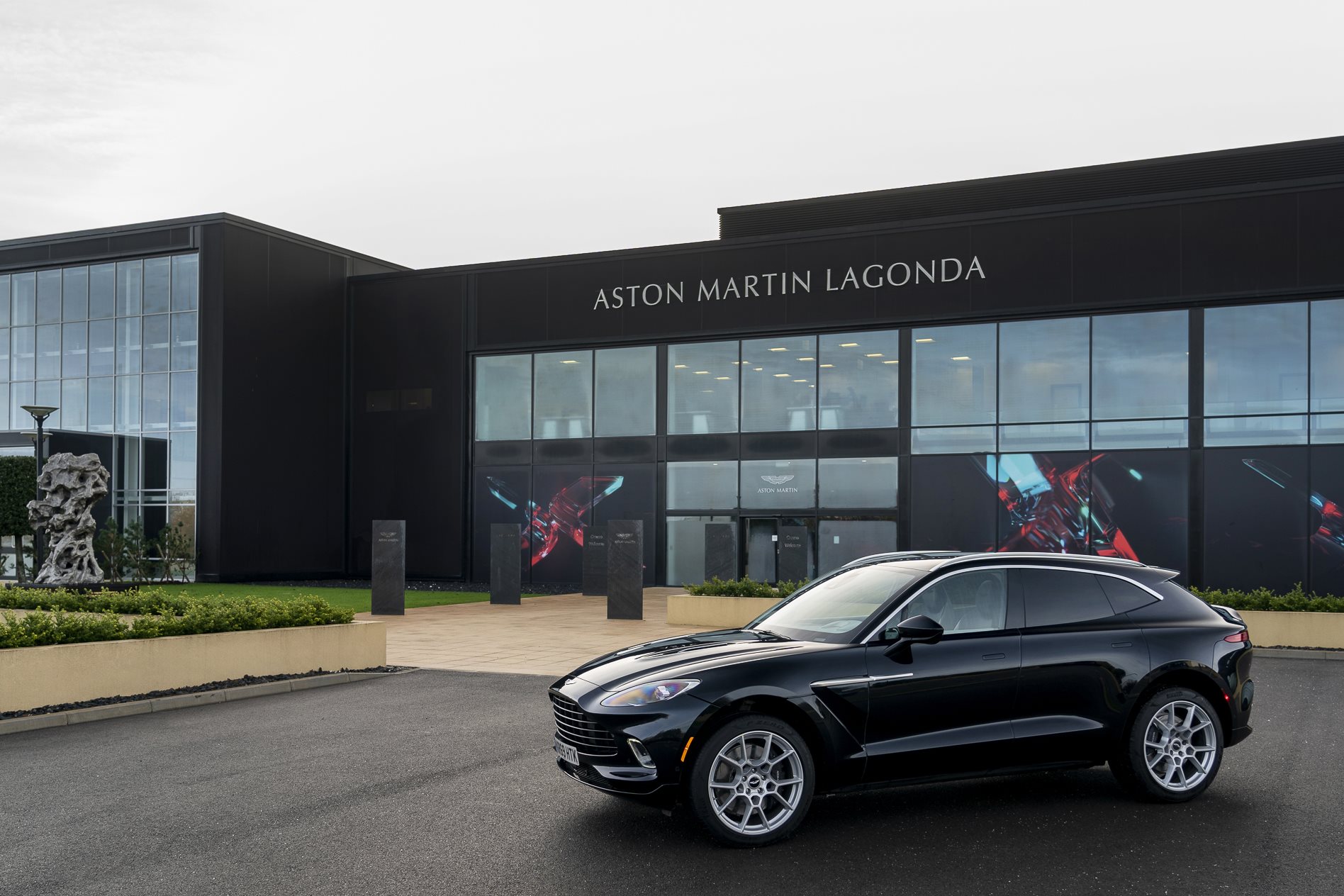
Aston Martin EV plans
Aston Martin‘s Racing Green strategy will see the historic British marque transition to a PHEV-focused brand by 2024, as it transitions towards its first battery electric vehicle (BEV) offering expected in 2025.
The DBX mild-hybrid, available overseas in the Chinese market, and incoming plug-in hybrid mid-engined Valhalla, sparks Aston Martin’s path to electrification.
While plans had originally been floated to revive the Lagonda sub-brand as an electric-only marque, this was vetoed by Lawrence Stroll when the Canadian billionaire saved Aston Martin last year when he became a major shareholder and executive chairman.
All new models from 2026 are to be electrified in some fashion, with the British marque ultimately targeting an EV-only range by 2030.
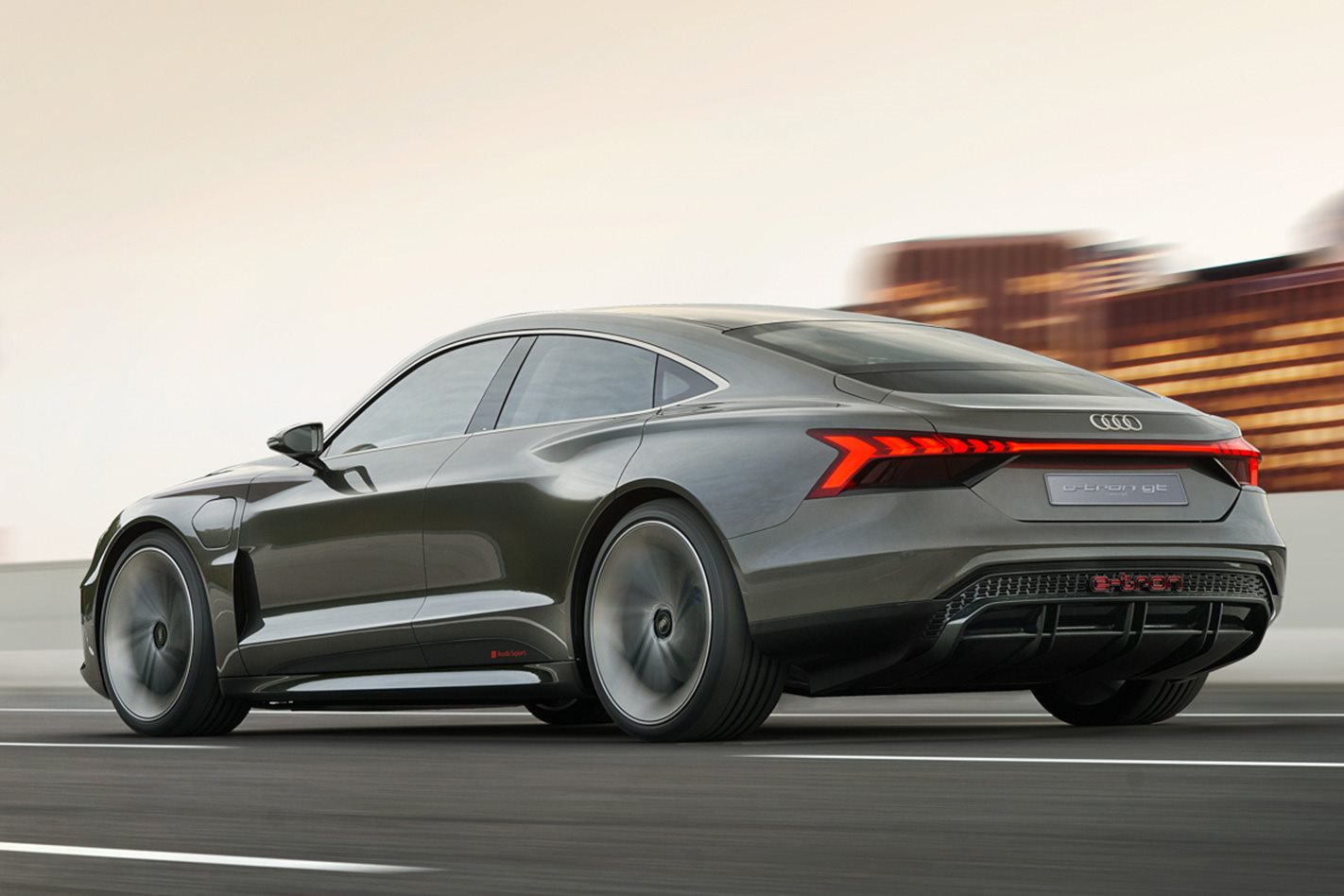
Audi EV plans
One of the leading companies in terms of its commitment to move away from ICE-power, Audi is now entering its last generation of such vehicles as it has announced it will no longer invest in their research and development due to Euro 7 emissions standards.
Audi’s final non-EV model will begin production in 2025 for Europe, although some will still be produced for the Chinese market past this time, with Audi intending on boasting a 30 per cent electrified range by 2025. ICEs are ultimately planned to be phased out in 2033.
Expecting to have 20 EV models in its line-up by 2025, Audi will exclusively bring electric-powered vehicles to market from 2026, becoming a part of its wider plan to go carbon neutral by 2050.
Currently Audi’s range of EVs in Australia comprises the the E-Tron SUV and incoming E-Tron GT – the sports-luxury grand tourer sharing a platform with the Porsche Taycan, expected to land later this year.
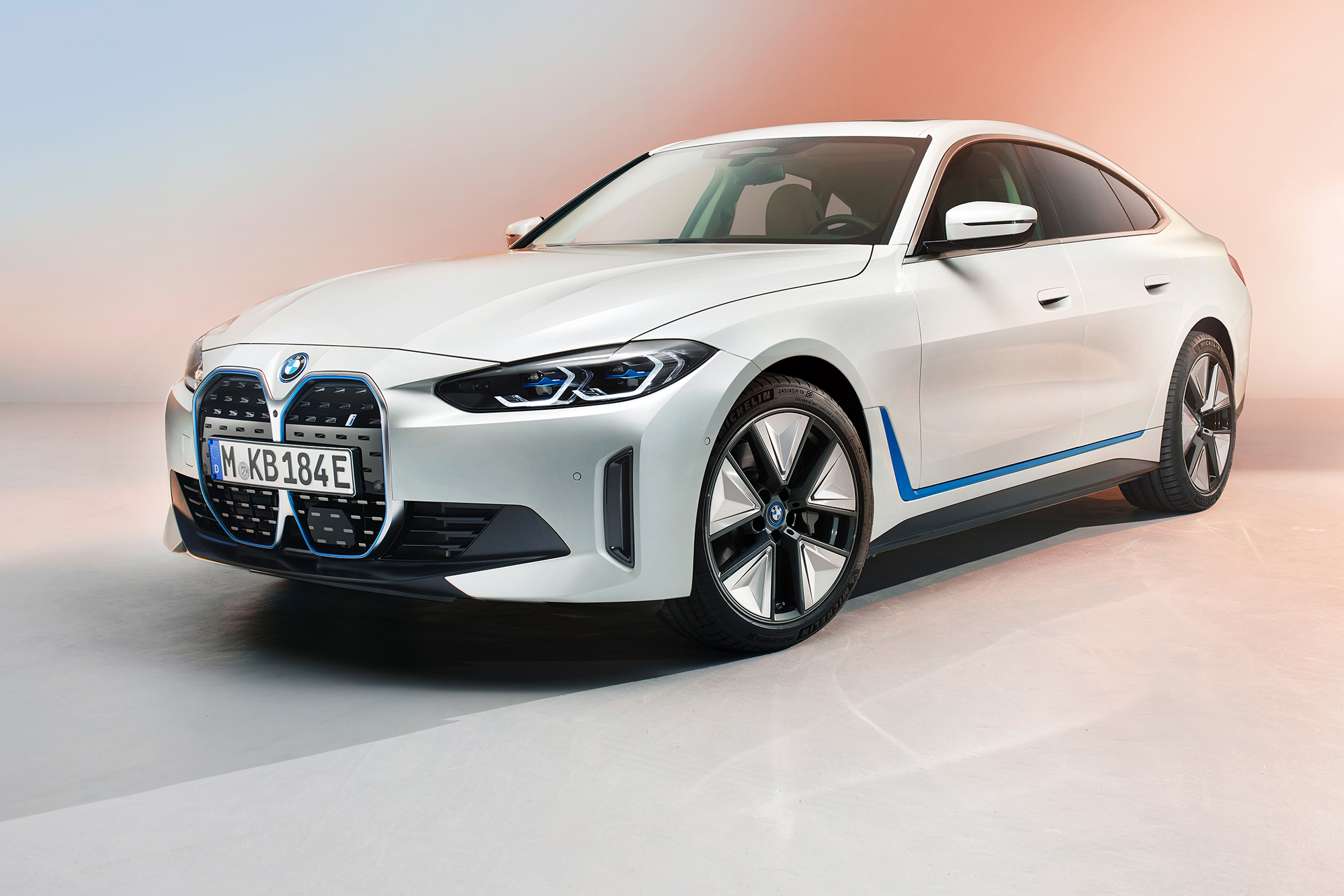
BMW EV plans
Many people forget BMW’s EV history but it’s important to note the Bavarian manufacturer was one of the first to bring electric vehicles to market.
After bursting out of the blocks with the i3 EV and i8 PHEV in 2013 and 2014 respectively, BMW didn’t bring another EV to the table until 2019 with the release of the iX3 – an electrified version of the X3 SUV – which has since been followed by the iX SUV and i4 sedan.
Setting a target of 50 per cent electrification across the BMW and Mini model ranges by 2030, the biggest push for EVs is coming from the Chinese market, with at least 15 fully-electric vehicles planned to be on sale in the country by 2023.
BMW aims to have 2 million electric vehicles on global roads by 2025, and expects annual sales of BEVs to exceed 1.5 million as early as 2030.
To cope with this, BMW announced it would be adding 60,000 additional chargers to its existing network of 300,000 this year.
In Australia, BMW is set to roll out the iX3 in local dealerships later this year, followed by the arrival of the iX and i4 in the first half of 2022.
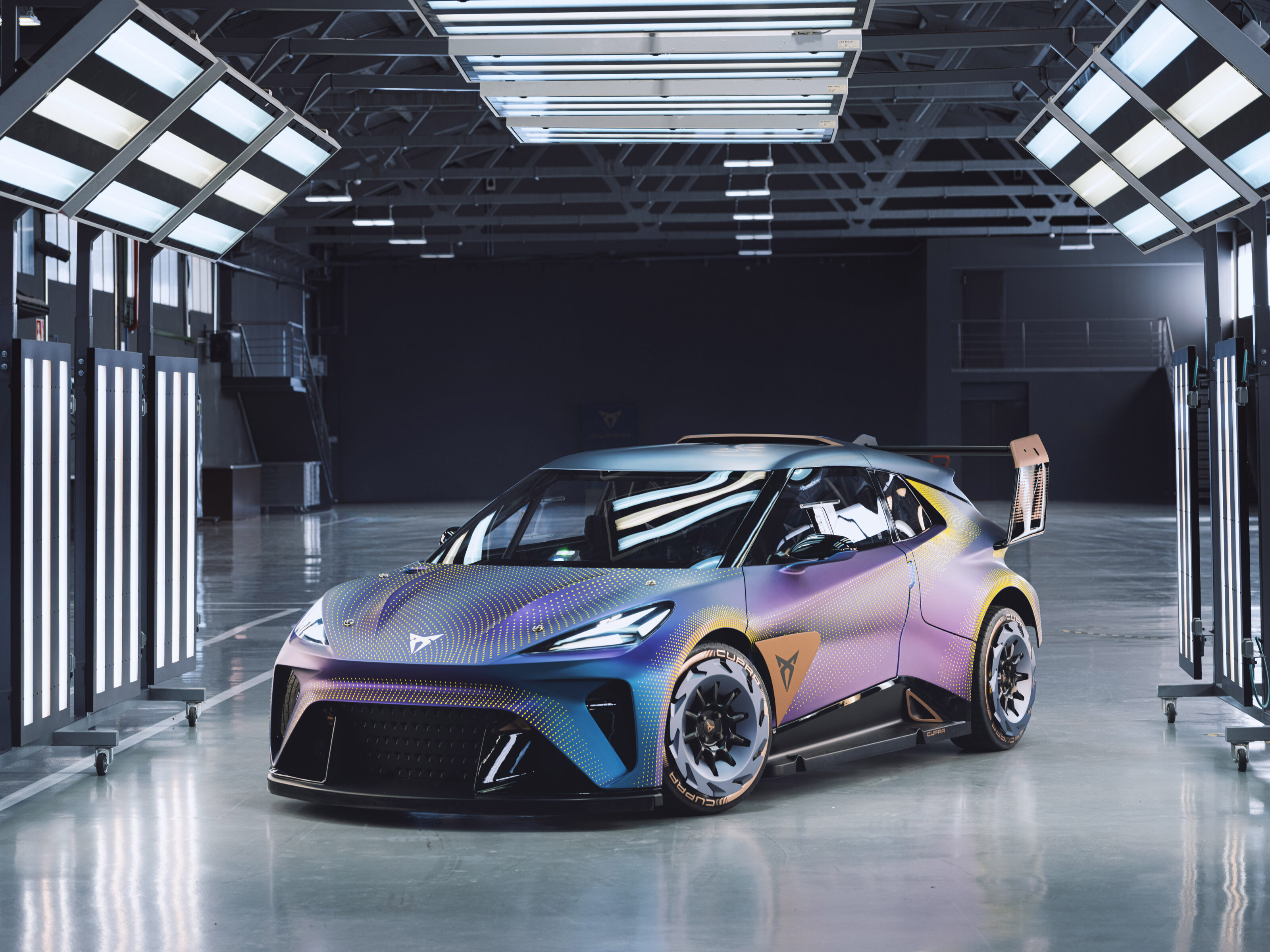
Cupra EV plans
Spanish carmaker Cupra, originally a motorsport subsidiary of Seat but relaunched in 2018 as a standalone brand, has long-term ambitions as a leading battery-electric vehicle manufacturer.
Compared to Volkswagen Group owners, Cupra aims to target a younger demographic with brand values that rest heavier on bold styling and tech. The Spanish carmaker intends on being an all-electric brand by 2030, with the local arm previously stating that Australia “needs to speed up” its EV uptake as it lags behind other world markets.
The current range of combustion-powered Leon hatchback, Ateca SUV and Formentor Crossover will be joined by the Cupra Born EV hatchback in 2023, marking the brand’s first EV offering locally. The Born will be followed by the Terramar plug-in hybrid SUV, Tavascan electric SUV and Urban Rebel electric compact hatchback.
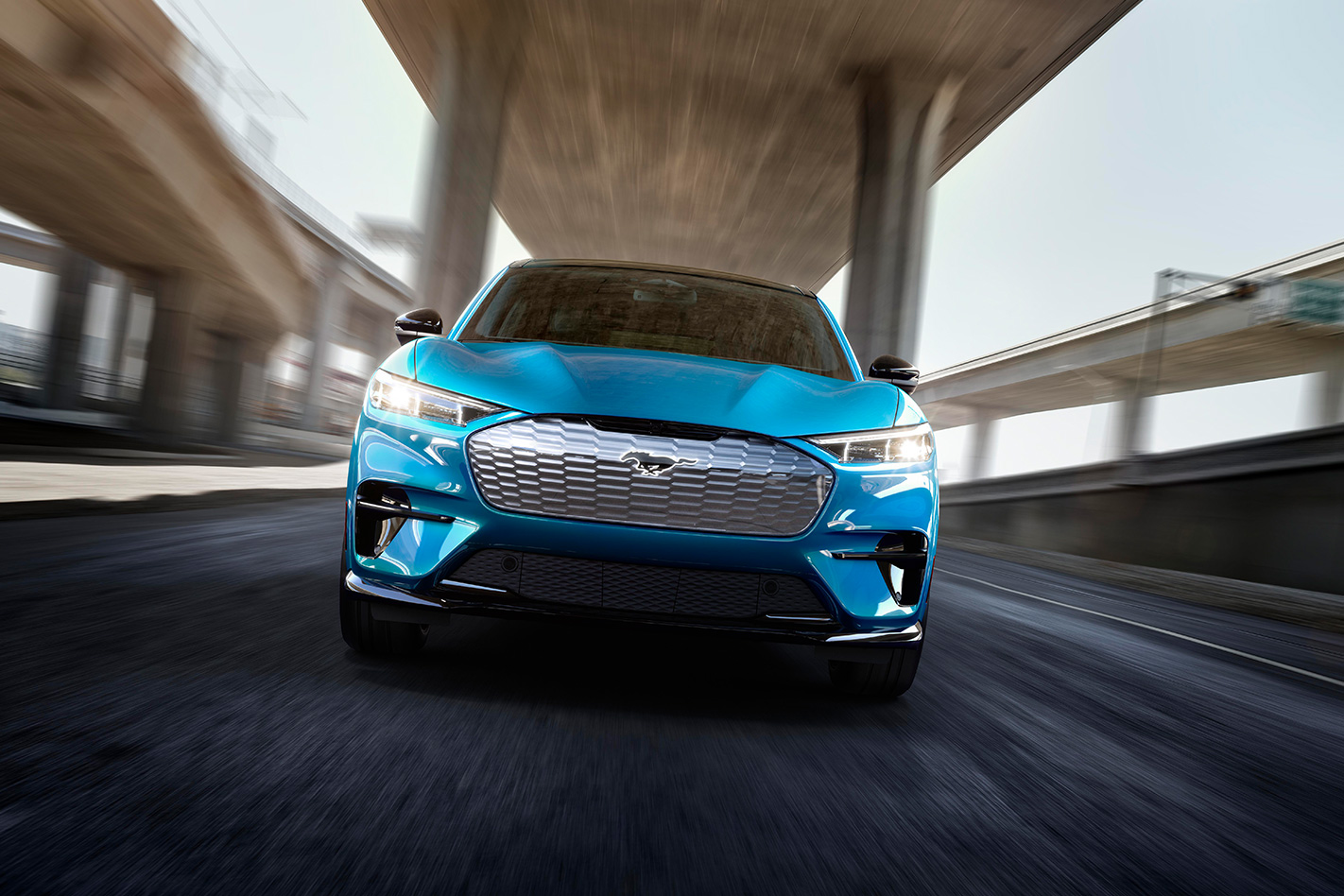
Ford EV plans
Having never sold an EV before 2020, Ford is a late bloomer in the electric game but is rapidly putting its money into the future – announcing a financial investment boost to US$50 billion (AU$72.7 billion) by 2025 – up from a previously-announced US$30 billion.
Releasing the Mustang Mach-E in 2019 and the e-Transit van in 2020, Ford has recently added the F-150 Lightning pickup – the first all-electric trucks in the US.
In the pursuit of reaching carbon neutrality by 2050, Ford is aiming at delivering an all-electric vehicle line-up in Europe by 2030, something it will achieve with the help of Volkswagen through a deal with the German manufacturer to utilise its EV architecture in European models. The European market will receive three new passenger EVs and four new commerical EVs by 2024, with plans to sell more than 600,000 EVs in the region by 2026.
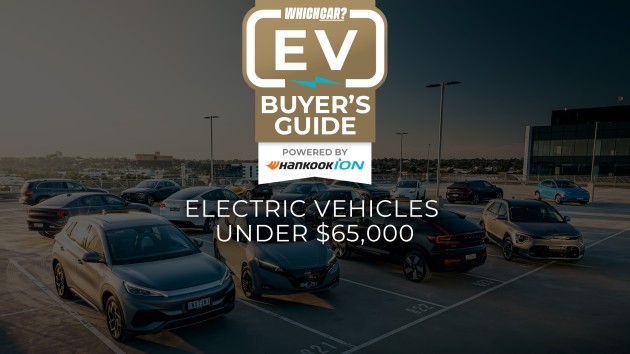
Best Electric Cars Under $65k: Affordable EVs Rated
Welcome to part one of three price-based EV buying guides, this one focused on the most affordable electric cars available in Australia today
Predictably, its aspirations in the US market aren’t quite as lofty, targeting 40 per cent of Ford sales to come from EVs by 2030, however it is also looking to introduce two large-vehicle platforms in the near future to underpin its SUVs and trucks.
Ford may soon be introducing electric utes to the Australian market through a $500m investment in Rivian, bringing its R1T dual-cab and R1S SUV Down Under as early as 2022, the first Blue Oval EVs to reach our shores.
Outside of these two models, Ford Australia has not announced any more plans to bring EVs to Australia, instead standing by its existing line-up.
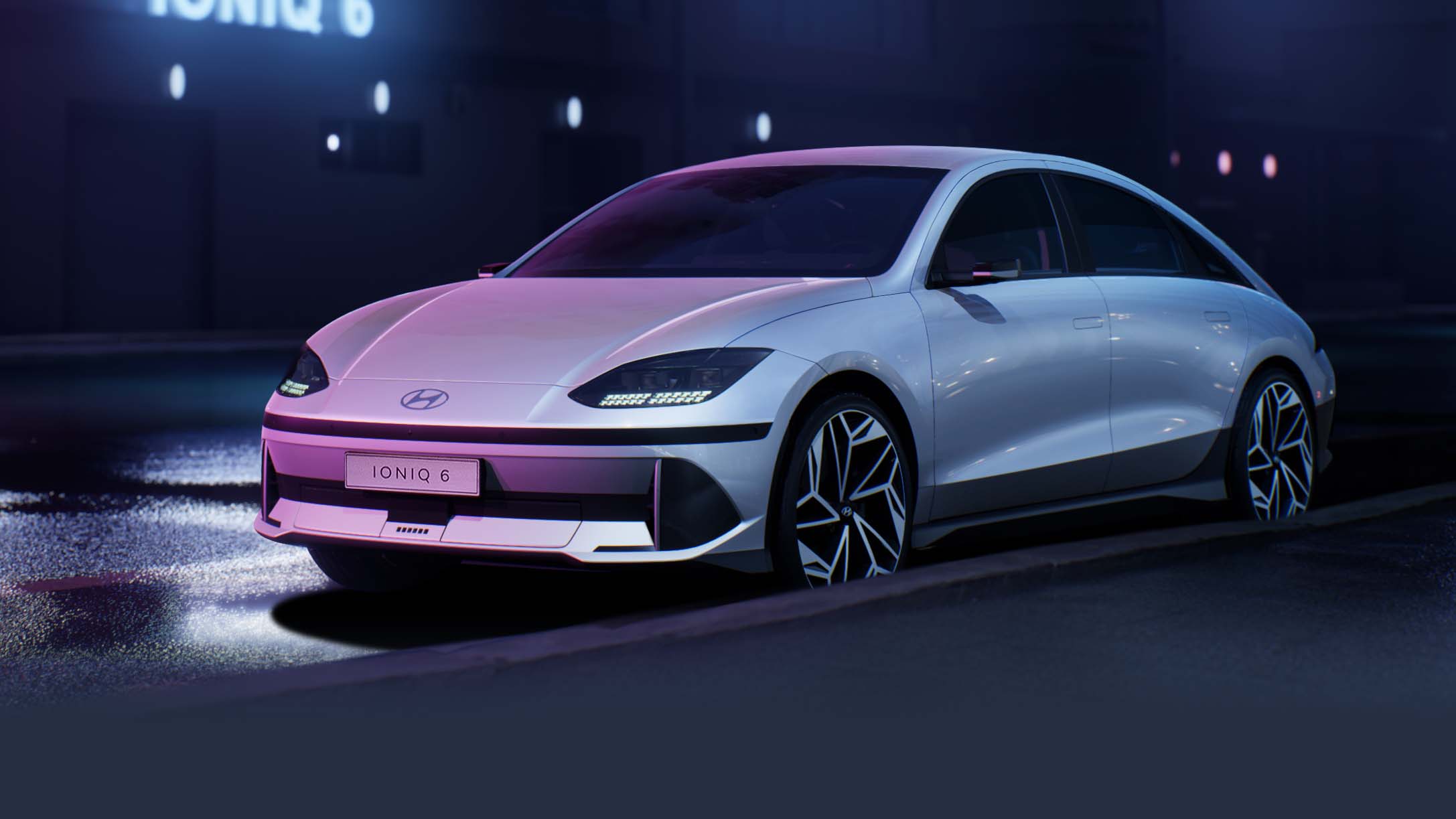
Hyundai EV plans
The biggest manufacturer of vehicles in South Korea has been putting forward an aggressive strategy of adding EVs within its model range, having introduced the electric IONIQ in 2016, the Kona Electric in 2019 and the Ioniq 5 in late-2021.
Two more models will join the Ioniq range in Australia, the Ioniq 6 (expected 2022) will be a low-slung grand tourer, the Ioniq 7 will be a large SUV (expected 2024), in the brand’s ultimate quest to only sell electric cars by 2040 – starting with 12 new EVs by 2025, comprising three sedans, six SUVs, one ‘new type model’ and one light commercial vehicle (ute or van). Hyundai is aiming for 560,000 sales in the same time frame.
Also in its local eco-friendly artillery is the Nexo – a hydrogen fuel-cell vehicle which has joined the Australian Capital Territory Government’s fleet, with 20 units now roaming Canberra’s streets.
Hyundai Australia supports EVs but believes the local market isn’t ready for the technology yet, lacking the infrastructure and government policy to support the industry.
Overseas, Hyudai’s American outpost has announced its own EV and battery manufacturing plant, located in Bryan County, Georgia, costing a projected US$5.54 billion. The plant will boast a production capacity of 300,000 vehicles, and is believed to be operational come 2025.
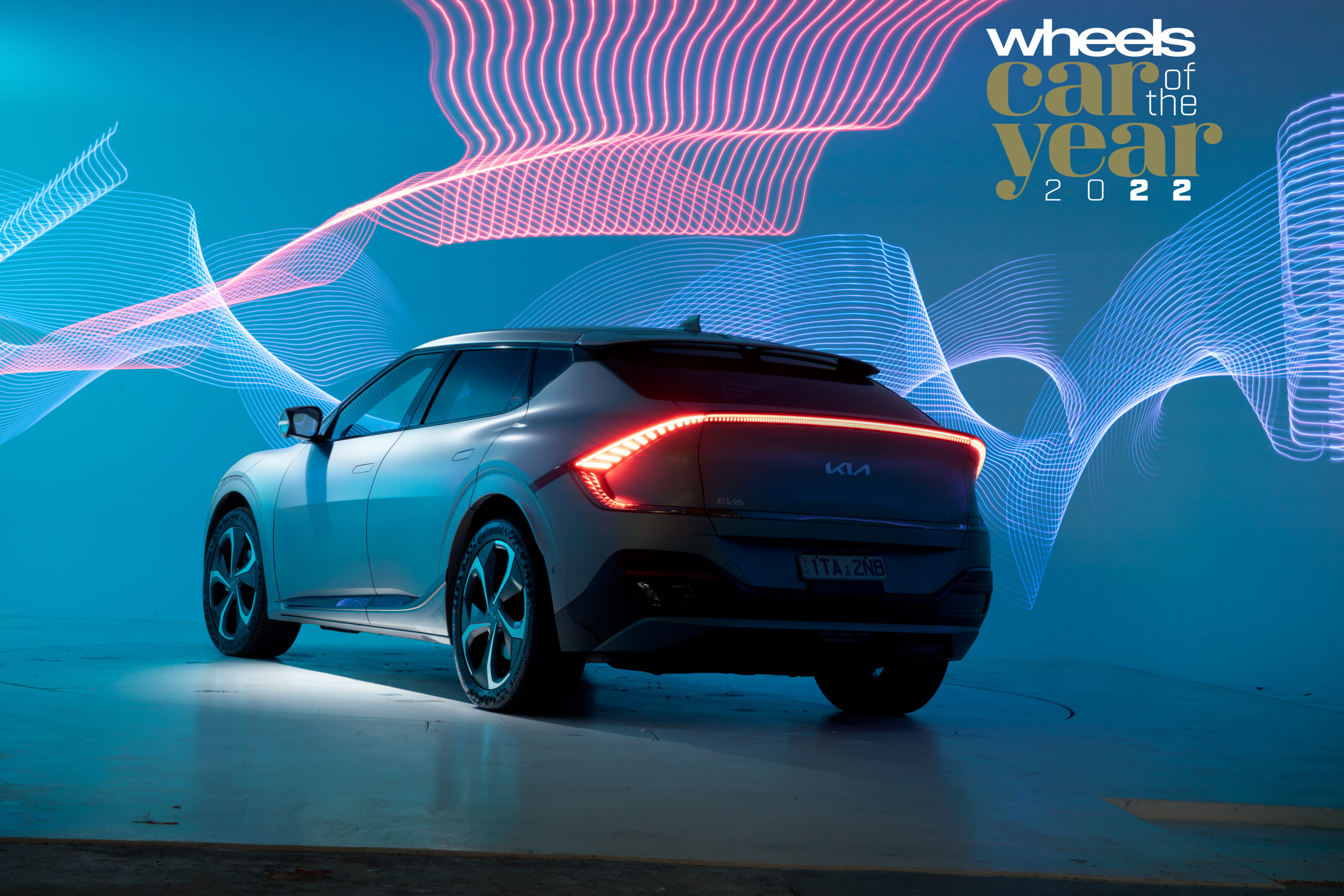
Kia EV plans
Underneath parent company Hyundai, Kia has been making its own plans to introduce electric cars to the market, with 14 dedicated vehicles (previously 11) expected to be launched by 2027 across multiple segments, including two new utes and a Kia EV9 seven-seat SUV. Kia has previously told investors that it plans to sell 807,000 electric vehicles globally by 2026.
Plan S was announced in 2020 and outlined the South Korean marque’s plans, followed by news of Kia adopting Hyundai’s E-GMP platform to underpin its range of electrified models.
In March this year, Kia released the EV6 crossover, its first dedicated EV model. Based on the same architecture as the Hyundai Ioniq 5, the EV6 won the most recent Wheels Car of the Year award..
The EV6 will join the Niro SUV as Kia’s only electric offerings Down Under, and although the Niro is also available as a mild-hybrid and plug-in hybrid, it is set to be moved to the E-GMP platform next year – doing away with combustion engines.
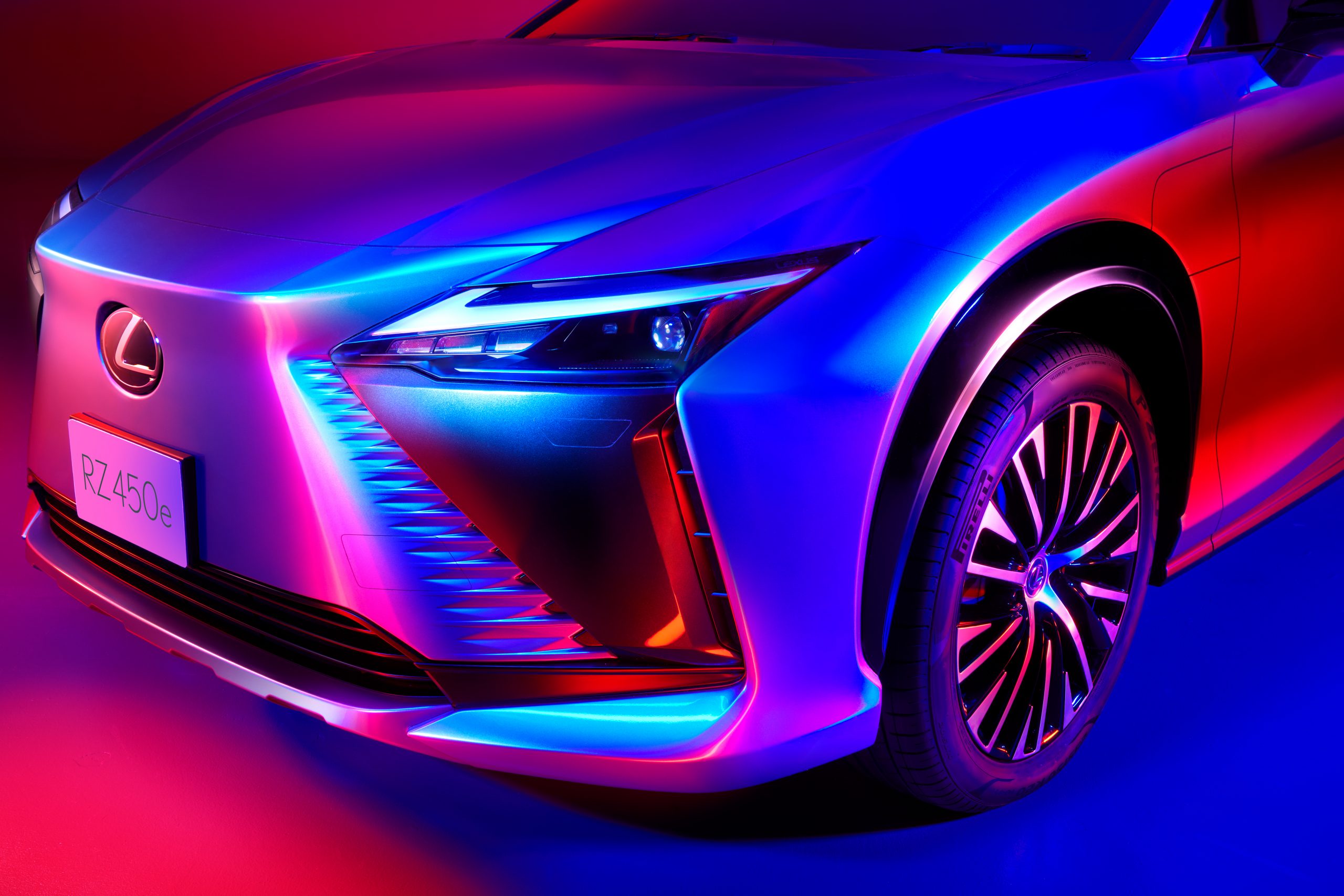
Lexus EV plans
As the luxury arm of Toyota, Lexus has often paralleled its parent company’s movements with adopting technology, being another early adopter of hybrid engines in the 2000’s and now beginning to introduce its first EVs. Parent company Toyota previously outlined a comprehensive electrification strategy, comprising 30 new electric models for both Toyota and Lexus, by 2030.
Lexus, in particular, will be an all-electric brand by 2035 globally – with the turnaround earmarked to come five years earlier in North American, Chinese and European markets.
The Lexus UX300e launched locally late last year, marking the Japanese brand’s first battery electric offering, underpinned by the same architecture as its UX combustion sibling.
The 2023 Lexus RZ will be the brand’s first bespoke-platform BEV, sharing its bones with stablemate Toyota’s BZ4X and joint-developer Subaru’s Solterra. The RZ remains under review for Lexus Australia who cannot yet confirm whether the vehicle will come to market domestically. Both the BZ4X and Solterra, however, are expected locally next year.
Its wider plans include a target of at least 10 hybrid or fully-electrified models on offer by 2025, with all models set to benefit from electric assistance in some form within the next five years.
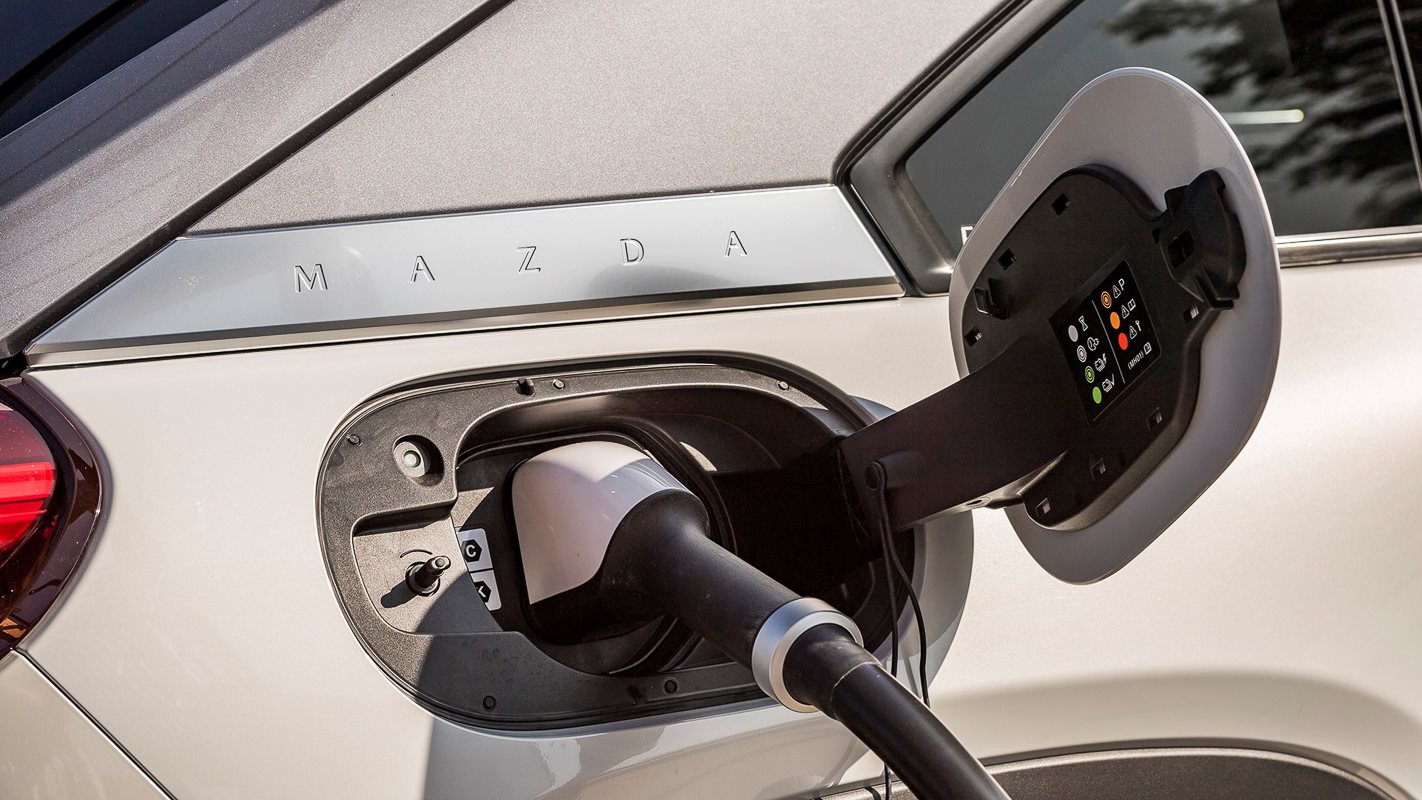
Mazda EV plans
Mazda is no stranger to bringing in radical technology to the automotive world – known for everything from the Wankel rotary engine to the Skyactiv ICE.
It might be surprising to hear it only released its first EV earlier this year in the form of the MX-30 crossover, a vehicle it hope will be one of many electric offerings in the near future.
In June, it announced 25 per cent of its model range would be EV by 2030, kicking off with three more electric cars to join the MX-30 by that time, as well as five hybrid models.
Plans also include the MX-30 to get a rotary engine range extender later this year. Unlike many other manufacturers, Mazda is keeping an open mind as the world rushes towards the age of electrification, continuing to invest and explore in ever-more efficient combustion engines, further development of hybrid assistance, the aforementioned range extender as well as investigating synthetic fuels.
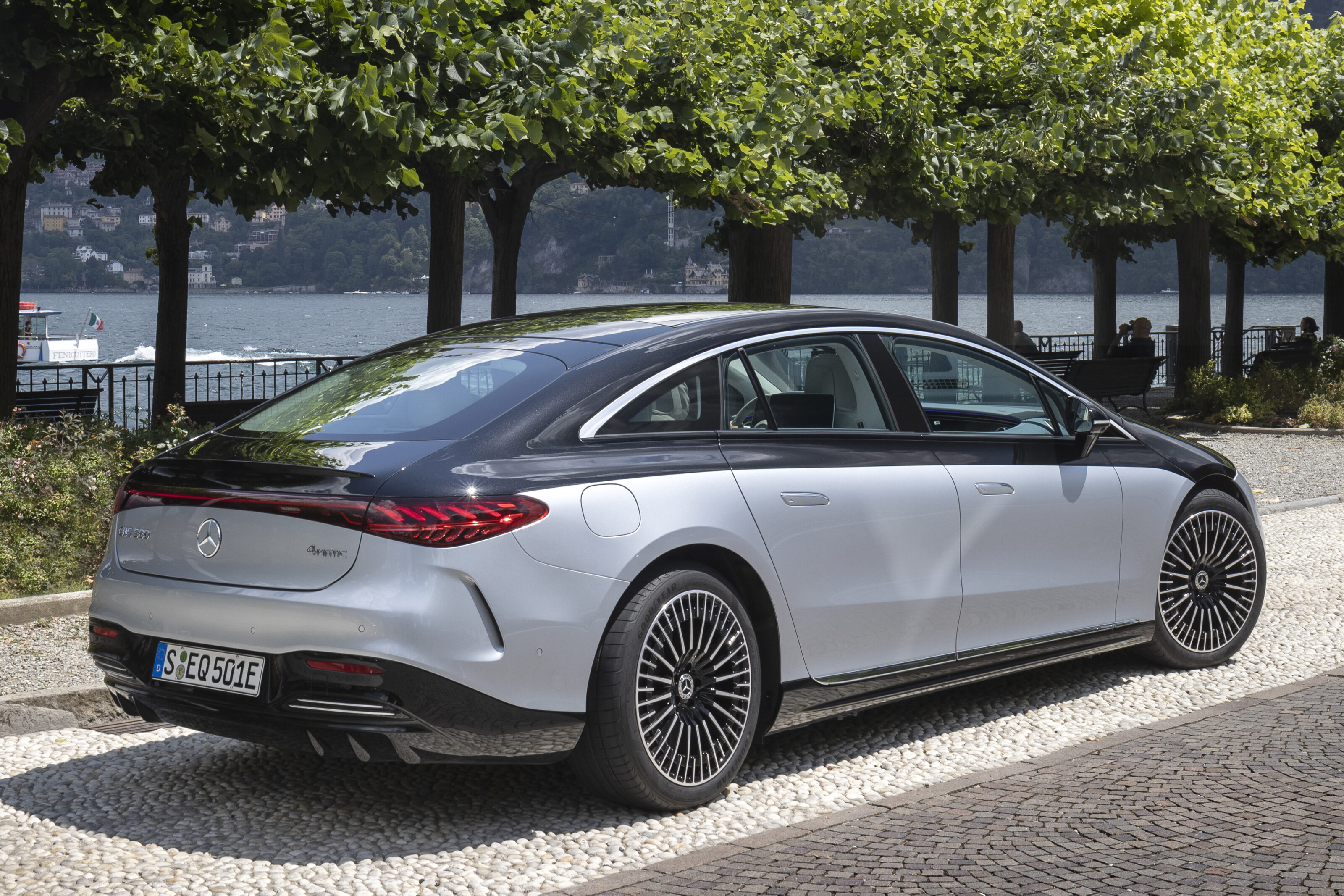
Mercedes-Benz EV plans
The world’s first automaker is continuing to be at the forefront of technological advancement, adopting a similar EV policy to Audi by releasing only electric cars from 2025 onwards, moving to a fully-electric line-up by 2030.
This target is mainly based around market conditions in Europe where government regulations are effectively forcing manufacturers’ hands, however Mercedes-Benz has said it will continue to sell ICE vehicles in markets which either haven’t adopted a suitable EV policy or where its electric cars are unsuitable for the time being.
Three new dedicated electric platforms are in the pipeline, with MB.EA covering all medium to large passenger cars, and providing a scaleable platform for other models to sprout from. The AMG.EA platform will be a dedicated performance EV platform, while Van.EA will underpin future generations of electric commercial vehicles.
Mercedes-Benz’s growing family of EQ cars are currently on offer in Australia – the EQA, EQB and EQC, taking after their GLA, GLB and GLC counterparts respectively. However, the recently-released EQS is being offered up as the flagship Mercedes-Benz EV with a strong influence from the S-Class.
The German marque’s local division is also currently at odds with the Australian Government regarding EV policies, believing the lack of a universal approach towards EV subsidisation is affecting the local market, with manufacturers unwilling to bring their full range of vehicles Down Under.
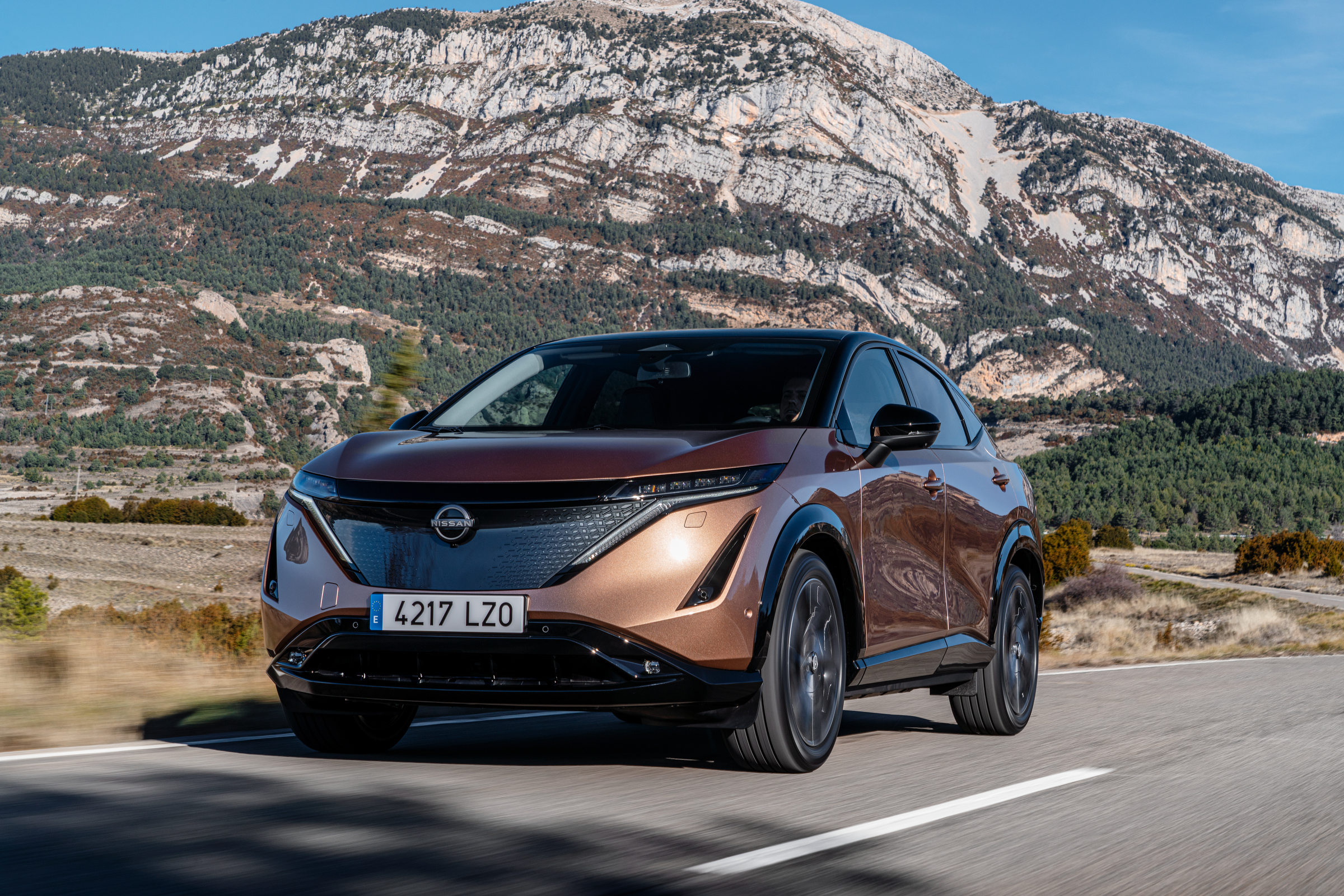
Nissan EV plans
Nissan is investing 2 billion yen (AU$21.2 million) over the next five years in order to accelerate its target of carbon neutrality by 2050, also saying it will make “100 per cent of all-new vehicle offerings electrified in the key markets of Japan, China, the US and Europe by the early 2030s”.
At the beginning of July 2021, it announced plans to build a new EV-dedicated production facility in the UK – featuring a 9GWh capacity at a cost of around AU$1.8 billion.
A pioneer of electric vehicles with the Leaf, Nissan didn’t then release another EV until the Ariya was unveiled last year.
The Leaf was given an update in 2019 before the e+ variant was released this year – scoring a power and torque boost to 160kW/340Nm, up from 110Kw/320Nm, and a driving range of up to 385km.
Further down the roadmap, Nissan has 23 electrified models in the pipeline, including 15 new EVs, with ambitions of reaching a 50 per cent product mix by 2030.
Sadly, Australia is a nation playing catchup in comparison to many world markets, and Nissan has stated it has no plans to bring the Ariya Down Under due to Australia’s inability to come up with universal incentives for EVs, claiming it would rather prioritise markets where the model will be more popular.
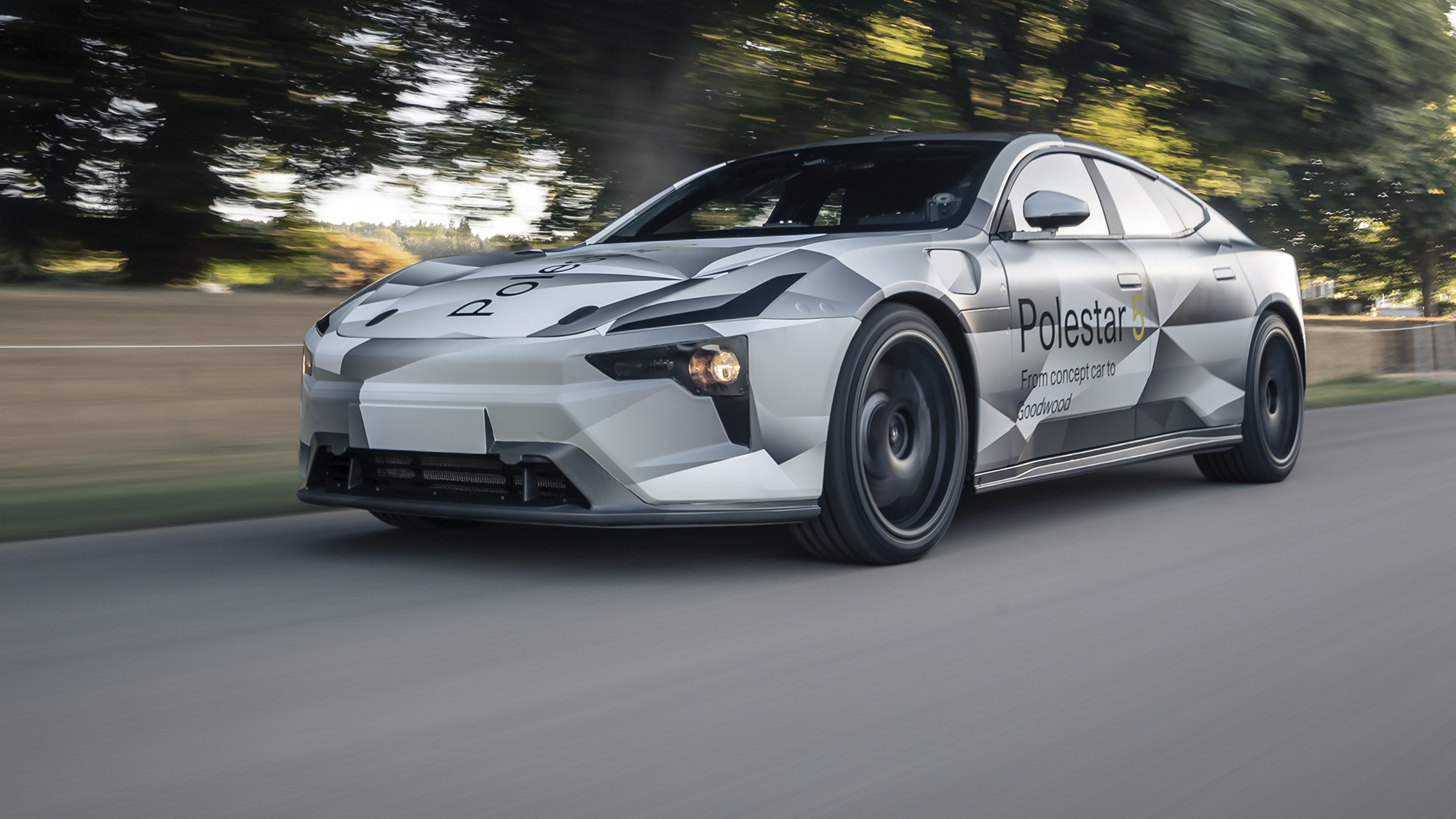
Polestar EV plans
Once the dedicated Swedish Touring Car team of Volvo, Polestar is now the Swedish manufacturer’s standalone EV brand, re-launched in 2017 as a Sweidh spearhead of electrified vehicles.
Following on from the launch of the Polestar 2 in 2019, the company announced it would be setting up shop in Australia, with its management team locked in before it officially starts operating towards the end of 2021, landing Down Under with the Polestar 2 range.
At the moment, all Polestar production is in China, however Volvo’s plant in Ridgeville, South Carolina will be home to production of the incoming Polestar 3, an SUV which will share a platform with the Volvo XC90.
Polestar 4 will be another SUV, this one wearing a more aero coupe-style roofline. The Polestar 4 is slightly smaller than the Polestar 3, and is expected to break cover in 2023.
Polestar 5 is slated as a sporty ‘four-door GT’, fitted with an 800V architecture producing 650kW/900Nm. It’s not yet revealed, but we have seen a camoflauged example sprint up the Goodwood hill.
Polestar 6, confirmed for production from 2026, will be the world’s first convertible EV, representing an open-top counterpart to the Polestar 5 as a low-volume two-seat roadster.
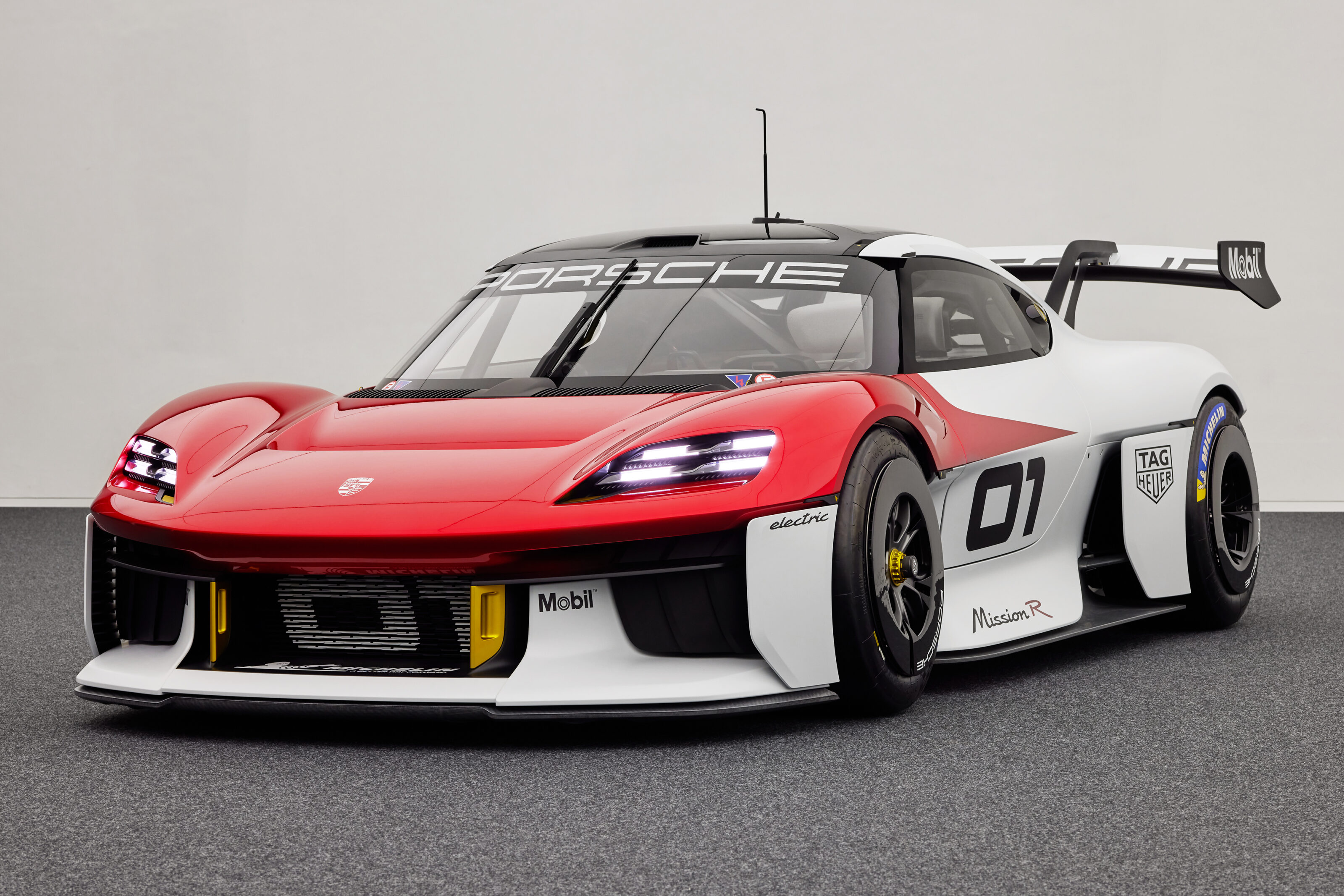
Porsche EV plans
Renowned globally for its motorsport exploits and strength in building sportscars, Porsche has positioned itself strongly in the transition to EVs, coming out in 2017 with a target of 50 per cent EV production by 2023.
By 2030, Porsche aims to be carbon neutral over its entire value chain and expects 80 per cent of its production output to be more than 80 per cent pure electric.
Far from the work of a moment, its first electric model was introduced in 2019 with the launch of the Taycan, a brand new vehicle based on the same architecture as the Audi E-Tron GT, currently sitting as the most expensive EV on sale in Australia.
Next-gen Macan will gain an electric variant, currently undergoing testing overseas with manufacturing expcted to begin before the end of 2023. Following Macan’s switch to electric powr, Porsche has also confirmed that the next-generation of its 718 sportscar will also be going battery electric, due by 2025. In July of this year, Porsche CEO Oliver Blume confirmed that a new flagship electric SUV is also in the works, and will be positioned above existing Cayenne and Macan models.
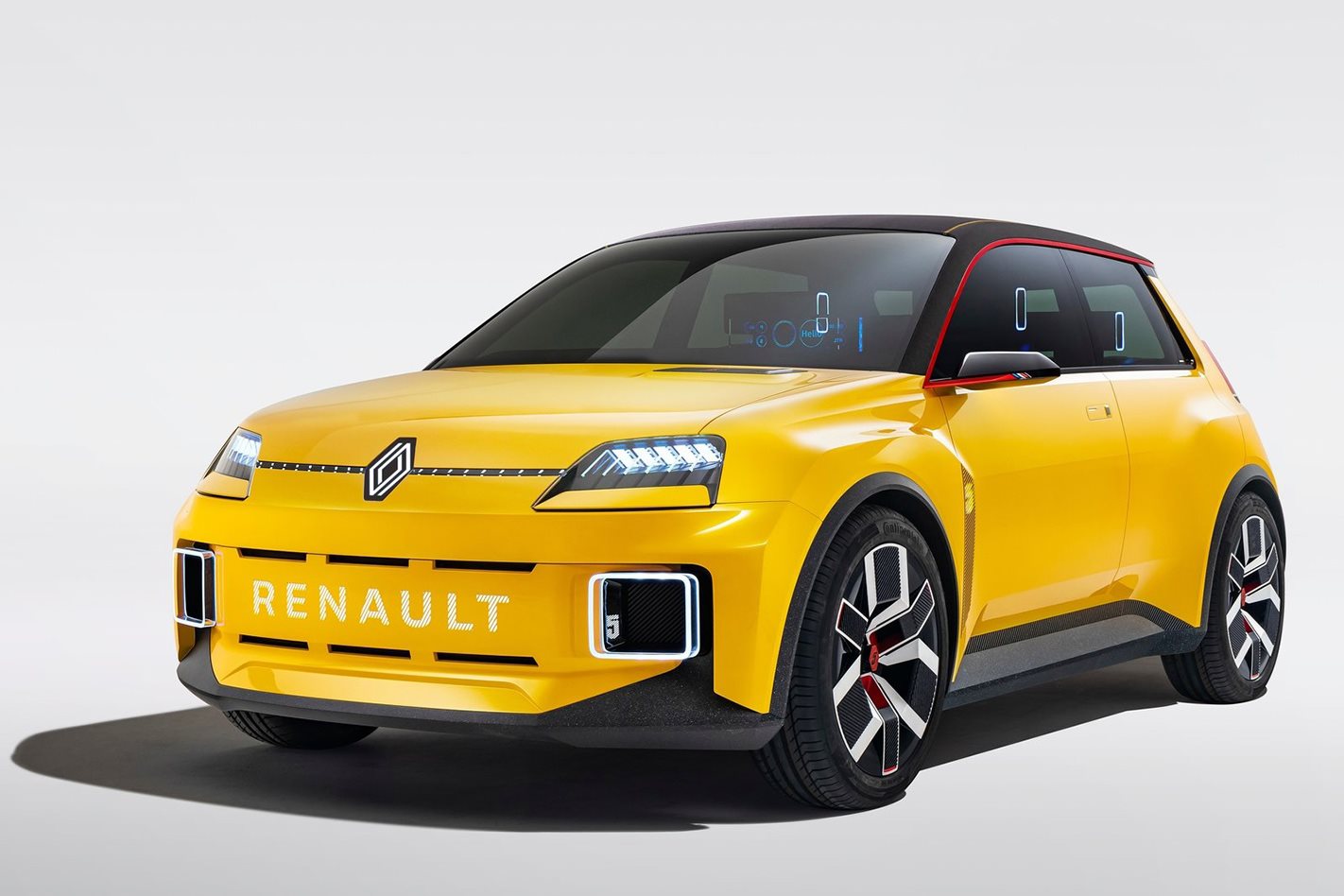
Renault EV plans
Renault, as part of the Renault-Nissan-Mitsubishi Alliance, is making a heavy push towards electrification, with all three members of the technical alliance pledging more than AU$31.55 billion in investment over the next five years,
The accelerated investment could spawn up to 30 models across the three marques, underpinned by a handful of platforms. Renault is pushing for 65 per cent of its vehicles to feature some form of electric power before 2025, before all Alliance members transition to electric vehicles-only by 2030.
Moving to a new EV platform is in Renault’s immediate plans, as its Zoe model nears the end of its lifecycle prompting wholesale changes through the French manufacturer’s architecture.
The Common Module Family (CMF) platform will be used across future Renault and Nissan models (see above), offering a 33 per cent reduction in production costs over the Zoe’s current base and also allowing it to be shared across a wider variety of vehicles in two scalable sizes.
CMF-BEV will underpin A and B-segment vehicles, while the CMF-EV will be adopted by larger C and D-segment models – starting with the Megané E-Tech, a crossover which will be unveiled at this year’s IAA Munich Motor Show.
Renault’s ElectriCity facility is set to be the largest EV manufacturing plant in Europe once it’s built, providing up to 40,000 jobs by 2025 and almost exclusively working with CMF-based vehicles.
Sub-brand Alpine, which recently took over from Renault Sport as the marque’s performance division, will be a dedicated EV-only brand in future – already planning to bring a hot version of the revived Renault 5 to market among others.
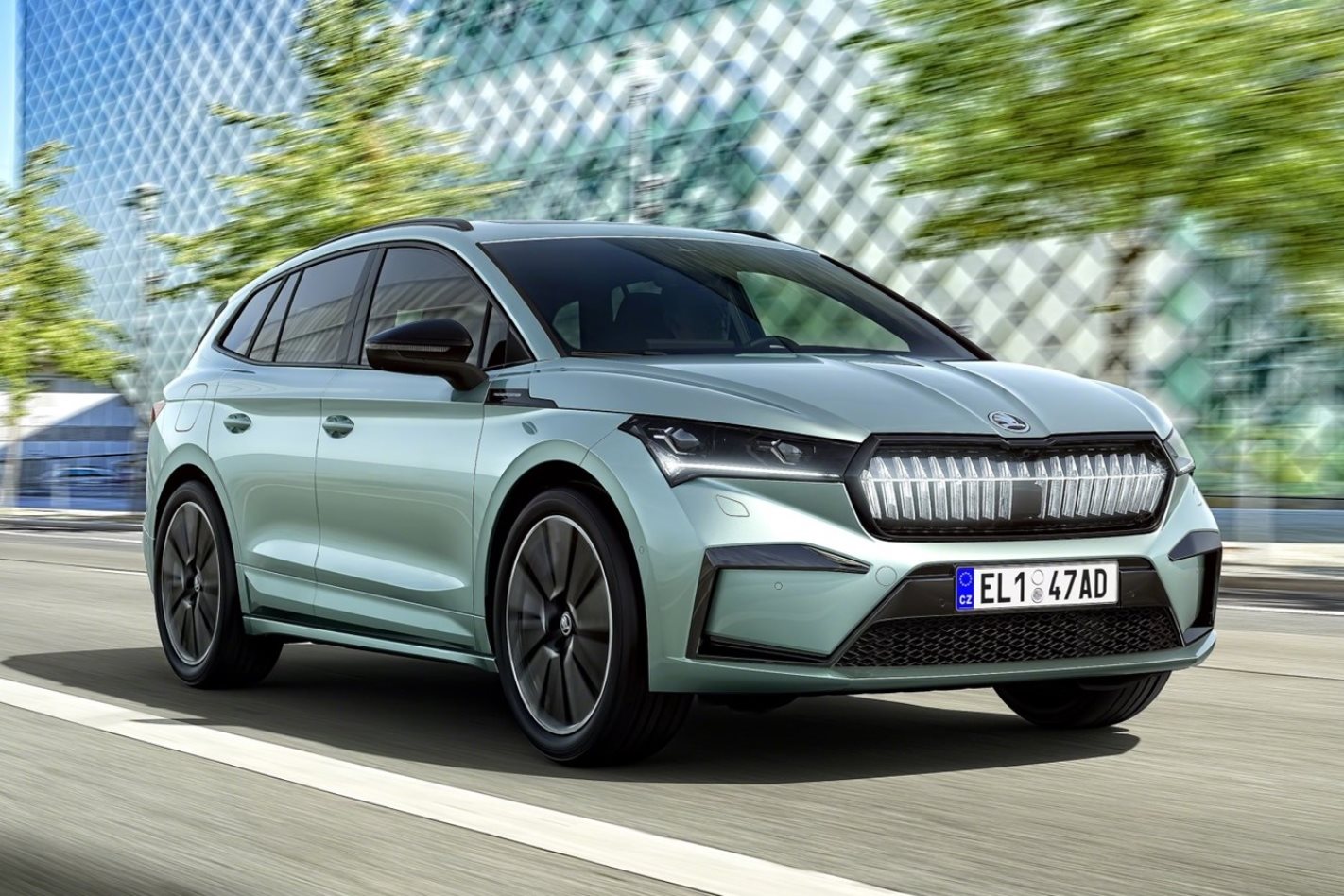
Skoda
By the end of the decade, Skoda is targeting a 50-70 per cent mix of EVs within its product portfoloio, and aims to slash its carbon emissions by more than half, compared to its 2020 levels.
Skoda currently offers a handful of electric vehicles overseas in Europe, including electric versions of the Superb and Octavia, as well as its first bespoke EV which will be coming to Australia in 2023 – in both conventional SUV and ‘Coupe’ SUV-styled bodies.
The Enyaq is built atop Volkswagen Group’s tried and tested MEB platform and is sized between the Karoq and larger Kodiaq SUVs.
Exact local specifications remain, at this stage, unconfirmed, however the Enyaq is available overseas as a rear-wheel-drive with 109kW, 132kW and 150kW outputs, or all-wheel-drive with either 195kW or 225kW in the Enyaq RS.
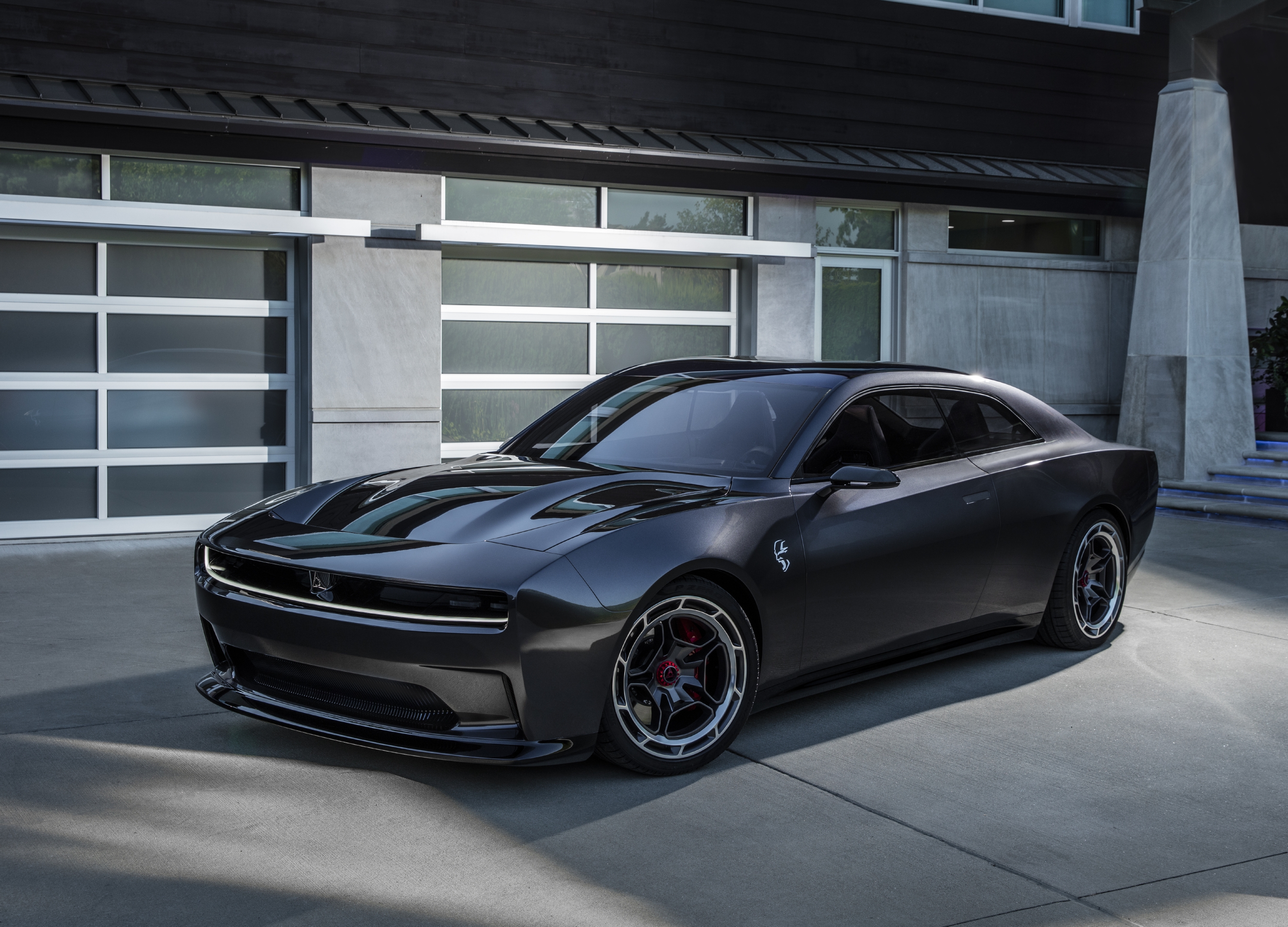
Stellantis EV plans
Abarth, Alfa Romeo, Chrysler, Citroen, Dodge, DS, Fiat, Jeep, Lancia, Maserati, Opel, Peugeot, Ram, and Vauxhall
Formed as a merger between PSA and FCA at the beginning of 2021, Stellantis has 14 brands under its umbrella and recently released its EV plans for each manufacturer – the majority of which are looking to fully-electrify their model range by 2030 in line with EU targets.
Its ultimate aim is for 70 per cent of vehicle sales to come from EVs by 2030 in Europe, although the target in the United States is lower at 50 per cent by the end of the decade.
With an investment totalling €30 billion (AU$47.8bn) over the next five years in EV technology, Stellantis also plans to introduce four EV platforms across its 14 carmakers; Abarth, Alfa Romeo, Chrysler, Citroen, Dodge, DS, Fiat, Jeep, Lancia, Maserati, Opel, Peugeot, Ram, and Vauxhall.
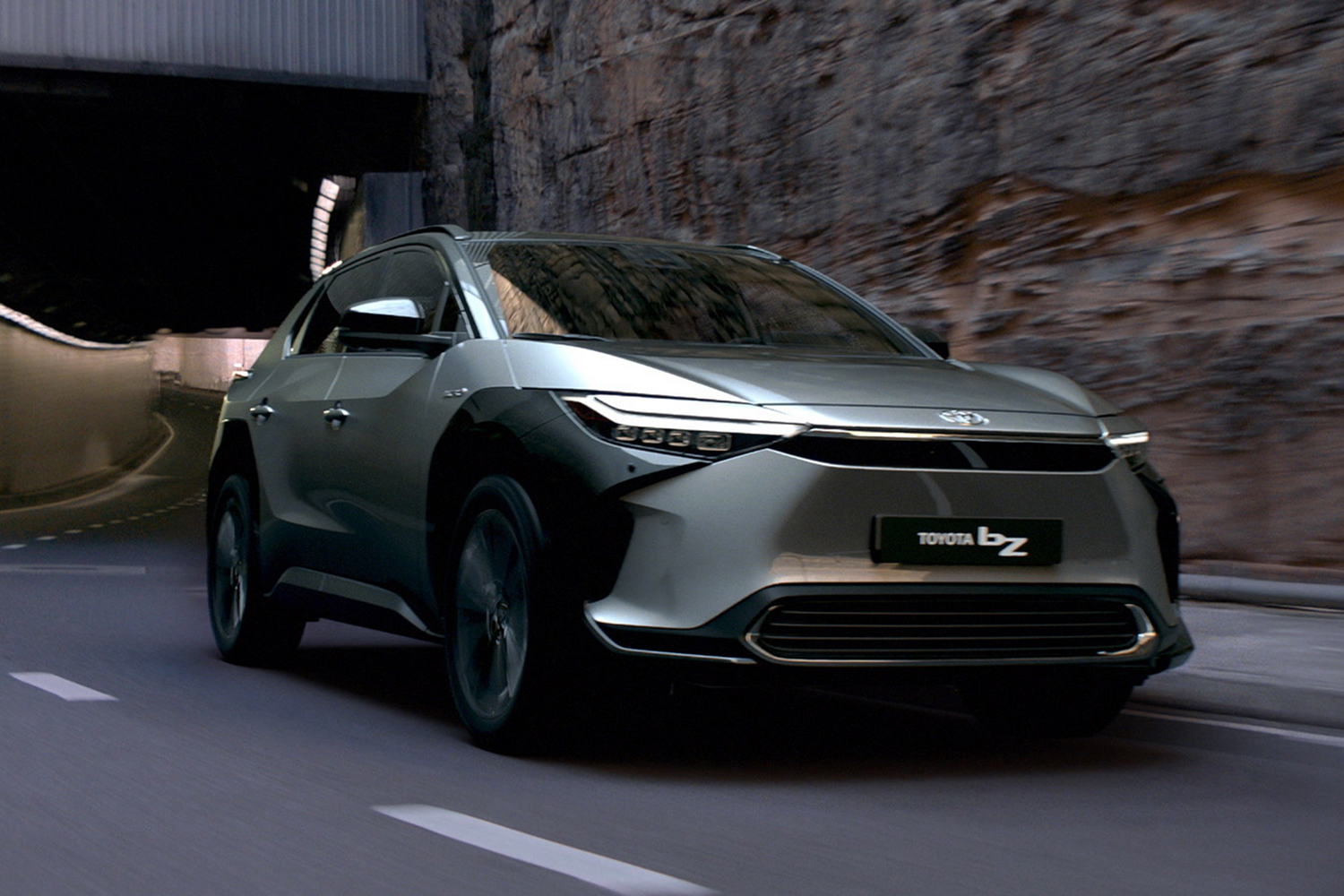
Toyota EV plans
The world’s second-largest manufacturer is surprisingly slow in its uptake of EVs in contrast to its early adoption of hybrid technology.
While Toyota has sold over 200,000 hybrid vehicles in Australia since 2001 and offers a hybrid variant of every passenger car and SUV in its range, it was a comparative latecomer when it came to its EV strategy, announced at the end of 2021. Toyota previously indicated that its hybrid technology isn’t a stepping stone and won’t be phased out in favour of full electric.
Toyota’s shock announcement hinted at 30 forthcoming electrified vehicles, 15 of which will be EVs, to be released by 2030. It also wants to sell 3.5 million BEVs globally by 2030, and will spin Lexus into an EV-only brand by 2035.
The ‘bZ’ (beyond Zero) name will adorn its future electric models, with seven to be launched locally by 2025. However, Toyota hasn’t specified how many dedicated EVs will be launched before the European ICE ban comes into effect in 2035.
As of 2022, Toyota sells no dedicated battery electric vehicles in Australia, but the long-awaited electric BZ4X is expected to arrive locally in 2023.
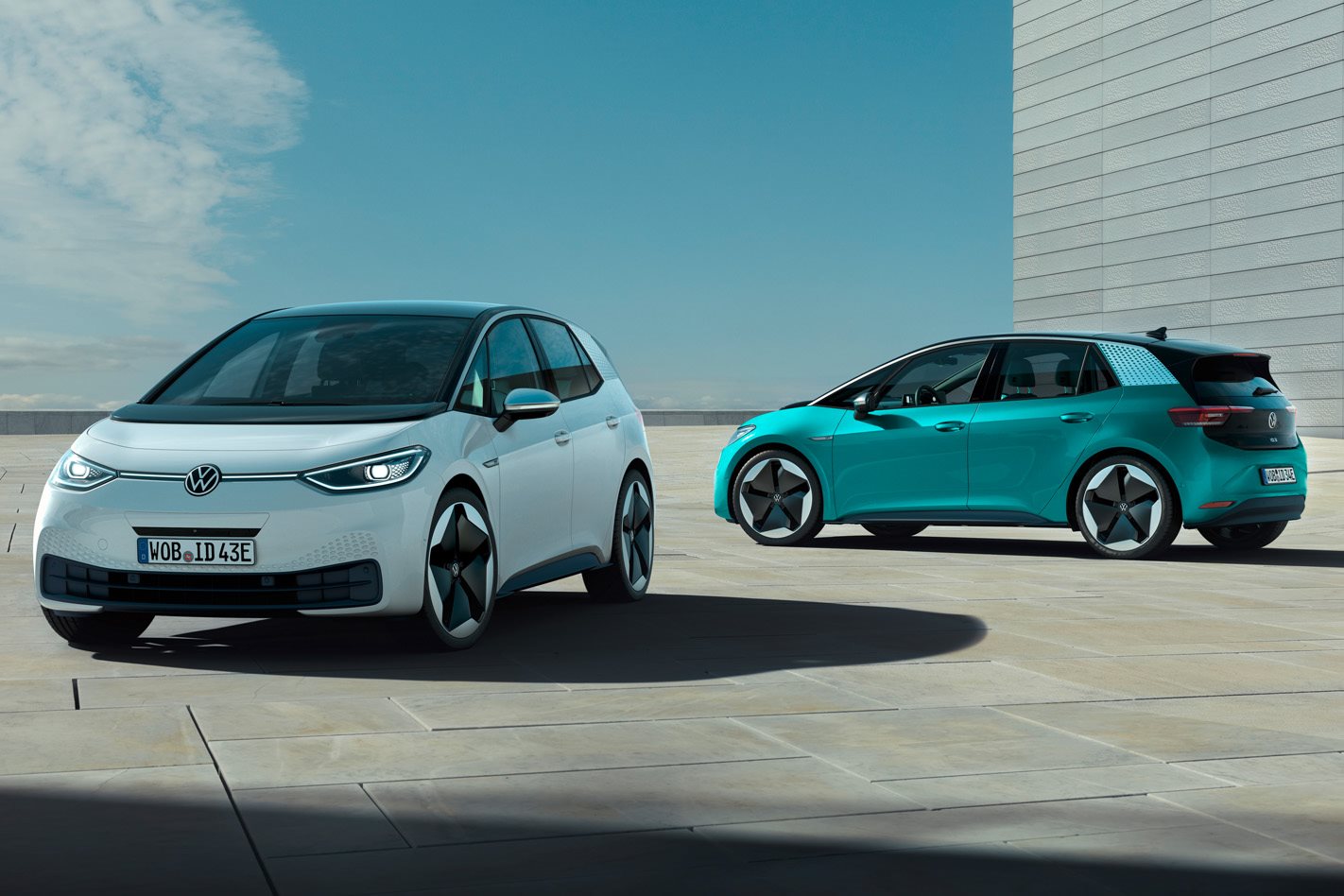
Volkswagen EV plans
The Volkswagen Group is the largest automotive manufacturer in the world, with control of 10 vehicle brands globally which contribute to over 10 million production units a year.
Volkswagen’s future strategy aligns with the Paris Agreement and the EU’s European Green Deal, targetting carbon neutrality by 2050, with a 40 per cent reduction in emissions by 2030 – compared to 2018.
Models from its European model line-up by 2035 will be electric, backing it up with an announcement in July 2021 to introduce a ‘Scalable Solutions Platform’ for its future EVs – potentially underpinning more than 40 million vehicles throughout its lifecycle.
The last purely internal combustion-powered platform will be developed in 2026, after which VW will be all in on EV development.
On sale overseas are the ID.3 and ID.4 EVs, introduced as electric substitutes to the Golf and Tiguan respectively. In August of 2022, however, Volkswagen Australia announced that its family of ID vehicles will be arriving Down Under from 2024. The Tiguan-sized ID.4 and more coupe-styled ID.5 are arriving first, then to be joined by the ID.3, sharing much of its underpinnings with the forthcoming Cupra Born.
Volkswagen is also nearing the global release of its retro ID.Buzz people-mover and van, which goes on sale in the US in 2024. It remains to be seen whether the reborn microbus will be coming Down Under.
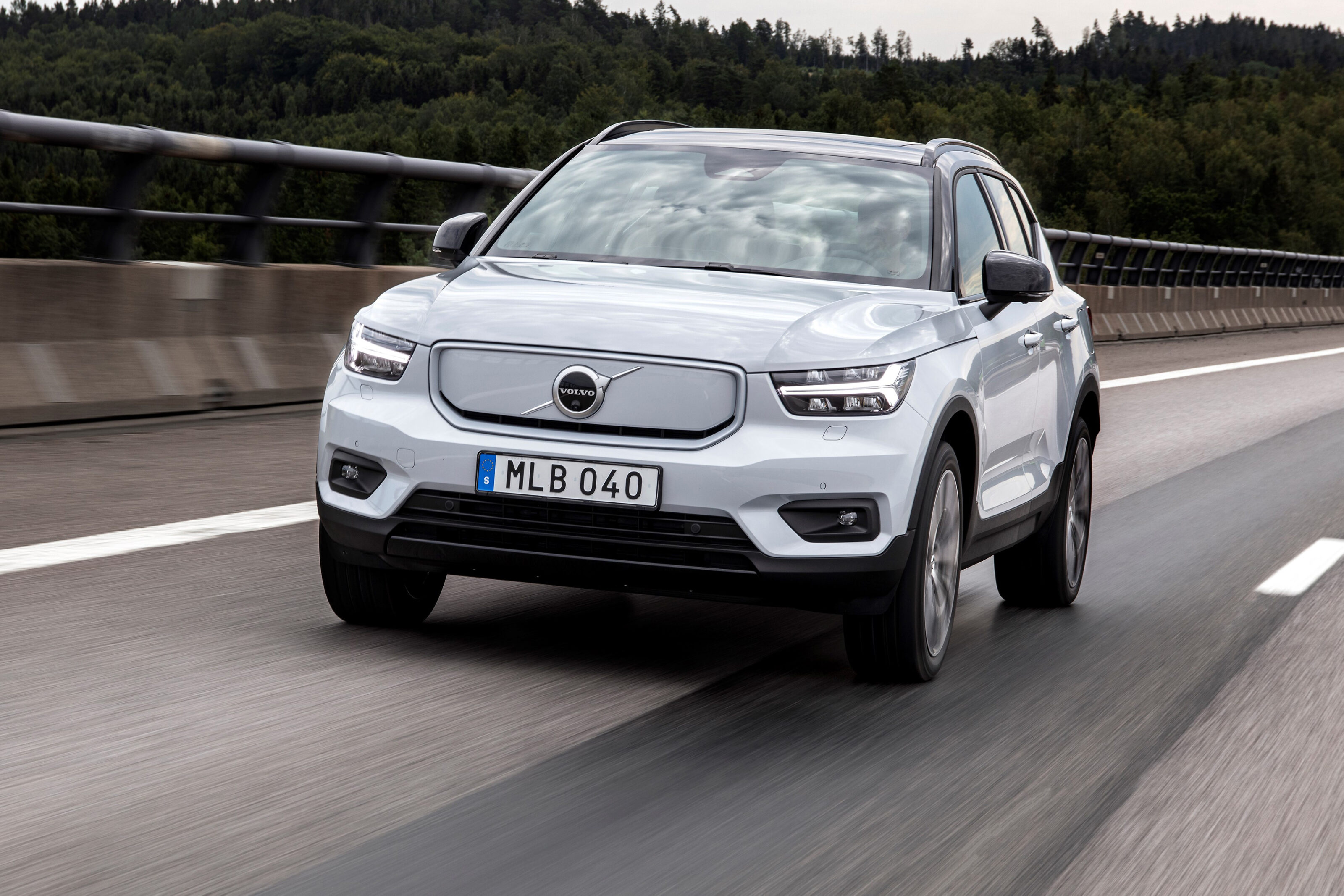
Volvo EV plans
The Swedes have always proven to be innovative and the tradition continues on with Volvo, the manufacturer recently making a wide variety of investments in EV-related companies to become a key player in the future of electric cars.
Half of all Volvo sales will come from EVs by 2025 before the entire model line-up goes all-electric by 2030 – although Volvo recently announced it plans to continue ICE production through Aurobay, a joint venture formed with now ex-parent company Geely.
Wanting to bring more parts of the process in-house, or at least have a bigger say in the process, Volvo’s announcements in the past couple of months have included a joint venture to develop batteries, another to create fossil-free steel and the decision to bring development of its operation systems in-house – a significant investment in its autonomous vehicles.
Currently only selling one EV in Australia, the XC40, Volvo plans to electrify a greater portion of its local vehicle line-up in the near future.
We recommend
-
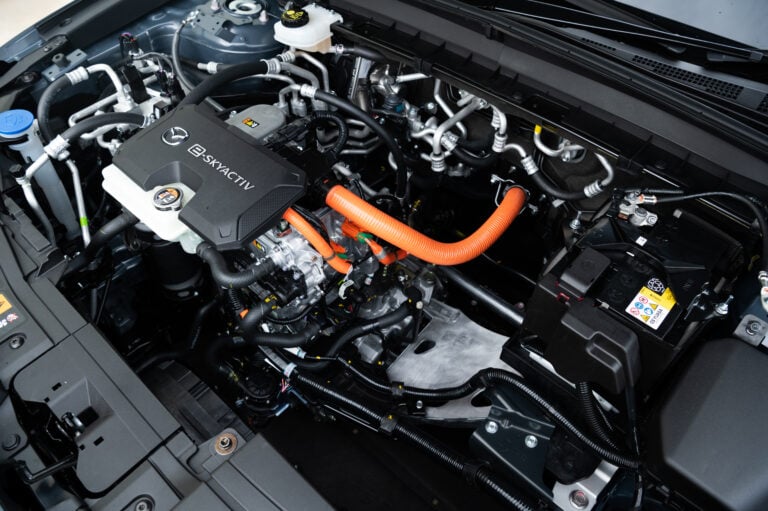 News
NewsMazda announces plans for 25 per cent EV line-up by 2030
Australia's second most popular car manufacturer has outlined its strategy to go electric
-
 News
NewsJoe Biden wants carmakers to produce 40 per cent EVs by 2030
Voluntary pledge to be introduced as Biden administration aims to reduce carbon emissions
-
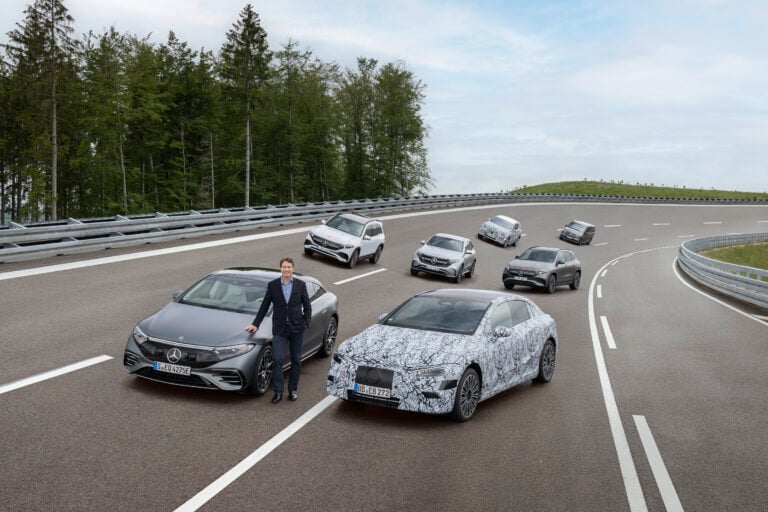 News
NewsMercedes-Benz to become fully-electric by 2030 – but with one condition
The world's first automotive manufacturer will be making sizeable investments to remain on-track for its target
-
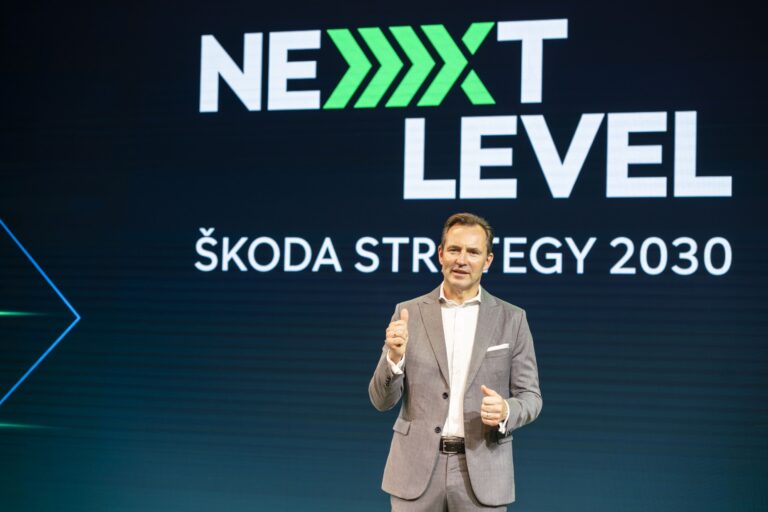 News
NewsŠkoda targets market expansion and greener future in 2030 strategy
Czech marque also wants to be one of the top five automakers in Europe within the next eight years
-
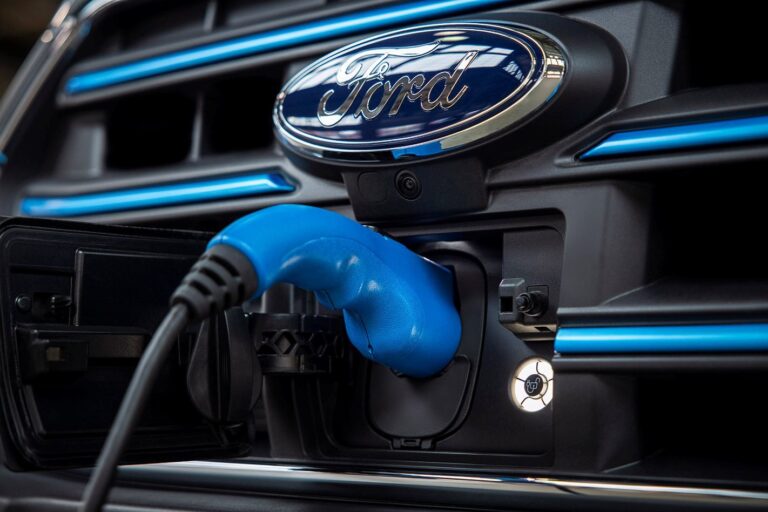 News
NewsFord confirms all-electric line-up in Europe by 2030
Ford’s shift is another sign the electric future is fast approaching whether Australia likes it or not
-
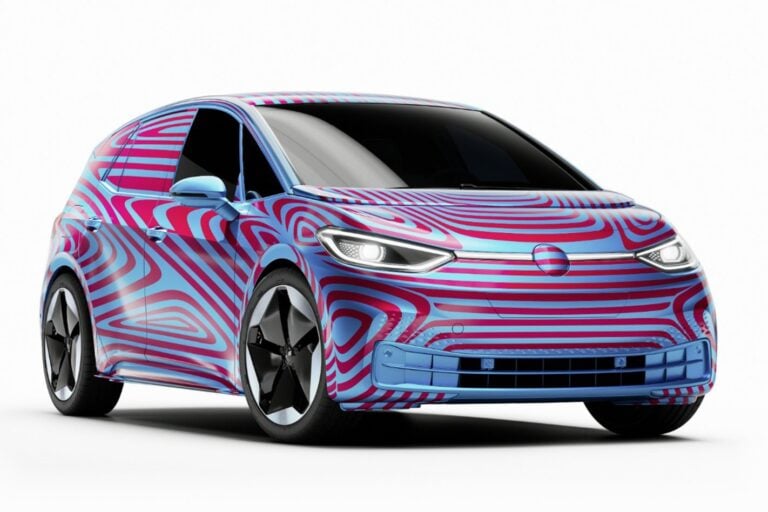 News
NewsHalf of Australian sales to be EV by 2030: VW
Volkswagen’s ID.3 electric pioneer will be the new people’s car, leading the way for a whole family of EVs


